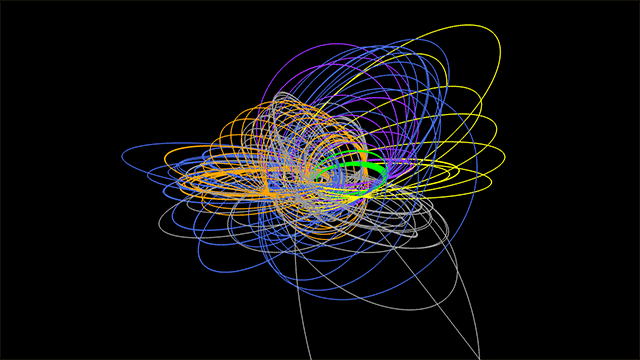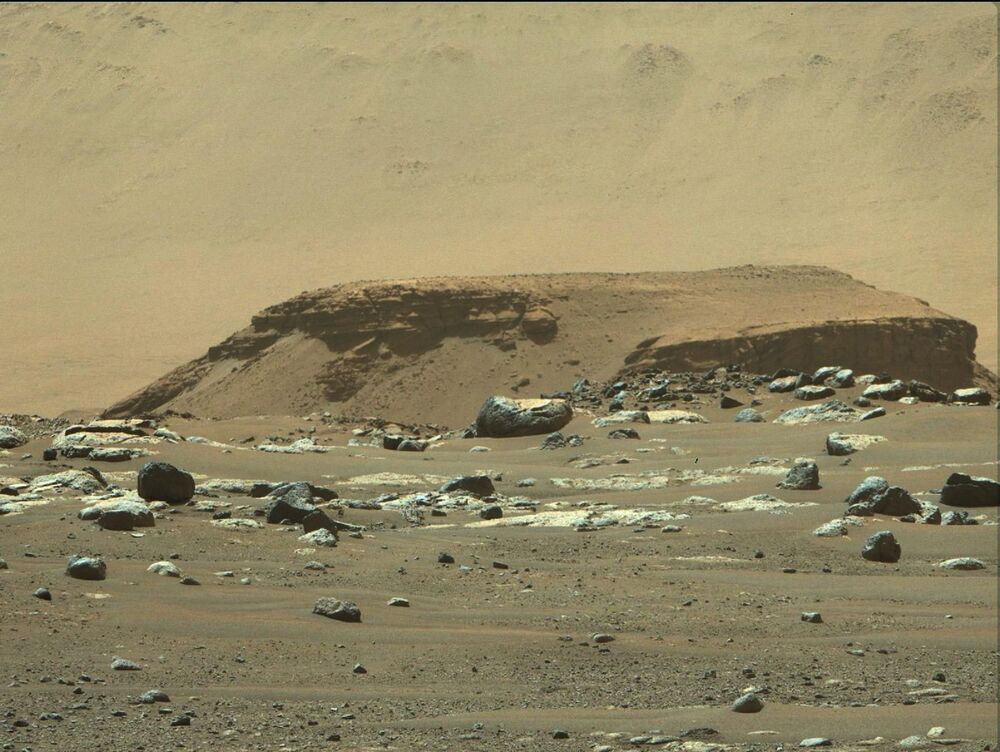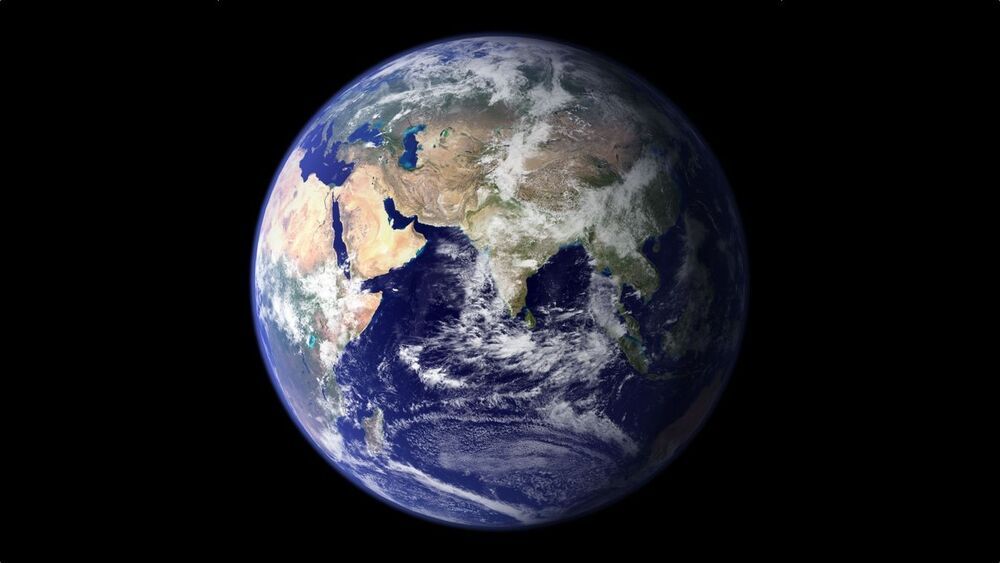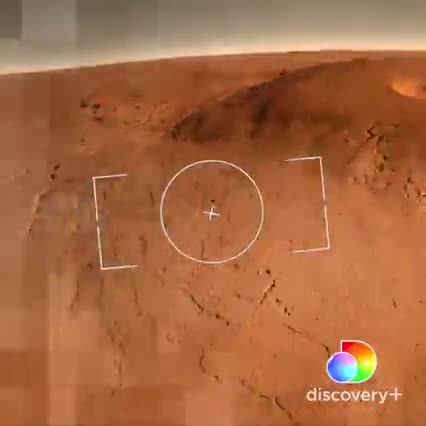Whether it’s sending spacecraft to other planets, driving rovers on Mars, finding out what planets are made of or how deep alien oceans are, pi takes us far at NASA. Find out how pi helps us explore space.
Archive for the ‘alien life’ category: Page 85
Mar 12, 2021
We May Never Find Life on Mars—And That Could Be a Good Thing
Posted by Dirk Schulze-Makuch in categories: alien life, existential risks
Some disconcerting thoughts about the future of the human species:
Perseverance, the Fermi Paradox, and the Great Filter.
Mar 12, 2021
NASA Mars scientists spur girls to ‘reach for the stars’
Posted by Alberto Lao in categories: alien life, robotics/AI
Space roboticist Vandi Verma, who operates the Perseverance—the most advanced astrobiology lab ever sent to another world—as it roams Mars looking for signs of ancient microbial life, said unconscious bias was also a factor in shaping aspirations. “Don’t make assumptions about what a child may be interested in because of their gender or race,” she said. “Don’t buy the Lego just for the boy.”
Mar 11, 2021
After cracking the ‘sum of cubes’ puzzle for 42, researchers discover a new solution for 3
Posted by Saúl Morales Rodriguéz in categories: alien life, information science, mathematics
What do you do after solving the answer to life, the universe, and everything? If you’re mathematicians Drew Sutherland and Andy Booker, you go for the harder problem.
In 2019, Booker, at the University of Bristol, and Sutherland, principal research scientist at MIT, were the first to find the answer to 42. The number has pop culture significance as the fictional answer to “the ultimate question of life, the universe, and everything,” as Douglas Adams famously penned in his novel “The Hitchhiker’s Guide to the Galaxy.” The question that begets 42, at least in the novel, is frustratingly, hilariously unknown.
In mathematics, entirely by coincidence, there exists a polynomial equation for which the answer, 42, had similarly eluded mathematicians for decades. The equation x3+y3+z3=k is known as the sum of cubes problem. While seemingly straightforward, the equation becomes exponentially difficult to solve when framed as a “Diophantine equation”—a problem that stipulates that, for any value of k, the values for x, y, and z must each be whole numbers.
Mar 4, 2021
Earth Will Lose Its Oxygen in a Billion Years, Killing Most Living Organisms
Posted by Quinn Sena in category: alien life
We could generate oxygen with machines and geoengineer the entire planets input and output.
A new study supported by NASA’s exoplanet habitability research lays out how the Sun will eventually bake the planet, turning Earth from a lush, oxygen-rich world to a dried-up husk with no complex life.
Mar 1, 2021
Neil deGrasse Tyson — Mind-Blowing Facts About The Universe- Top Speech
Posted by Lon Anderson in categories: alien life, physics

Neil degrasse tyson, science, neil tyson, neil degrasse tyson (organization leader), tyson, neil, astrophysics, degrasse, cosmos, space, universe, earth, startalk, ndt, aliens, mars, comedian, atheist, chuck nice, hayden planetarium, god, physics, astrophysicist, asteroid, comedy, atheism, interview, star talk, mkbhd, stars, time.
Mar 1, 2021
Does Water on Mars = Life? | Countdown to Mars
Posted by Alberto Lao in category: alien life
Mars is on the outer boundary of our solar system’s habitable zone, meaning it’s a region where liquid water could form and exist for long periods of time. We know that water is the source of life on Earth, but could it also point to the same on Mars?
Watch the NASA’s Perseverance Mars Rover touch down on Mars LIVE on our TikTok TODAY starting at 3:15P ET! http://tiktok.com/@discovery
Feb 25, 2021
Dark Matter May Be Ordinary Matter in Parallel Spacetime Continuums – Here’s Why
Posted by Alex Vikoulov in categories: alien life, quantum physics, singularity
Now cosmology inches towards the next paradigm shift: One of the most mind-boggling discoveries of modernity is that the fabric of spacetime is emergent from something beneath it. “[O]ne new theory says that Dark Matter may be ordinary matter in a parallel universe. If a galaxy is hovering above in another dimension, we would not be able to see it. It would be invisible, yet we would feel its gravity. Hence, it might explain Dark Matter,” in the words of Michio Kaku as an opening quote to this article. #DarkMatter #DarkEnergy #QuantumGravity #ComputationalPhysics #MTheory #DTheoryofTime #OmegaSingularity #pancomputationalism #multiverse #ontology
Dark Matter could be ordinary matter in the “probabilistic space” and “phase space” (5th and 6th dimensions of M-theory), possibly with “dark star systems” and life, imperceptible to us at our current level of development. In turn, Dark Energy could be a.
Feb 18, 2021
WE THE PEOPLE did it! #NASA has landed on Mars for the search for extraterrestrial life
Posted by TJ Wass in category: alien life
Feb 14, 2021
Sci-Fi Saturday: We Have Met the Aliens and They Are Comb Jellies
Posted by Jose Ruben Rodriguez Fuentes in category: alien life
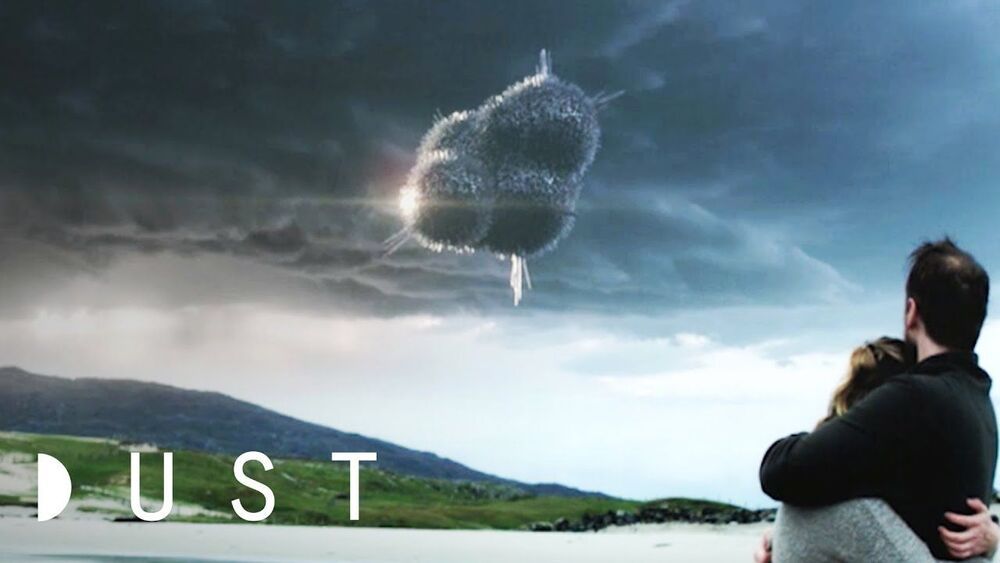
Definitely watch it for the sense of isolation when our technology bubble evaporates and for the “comb jelly” space alien.
